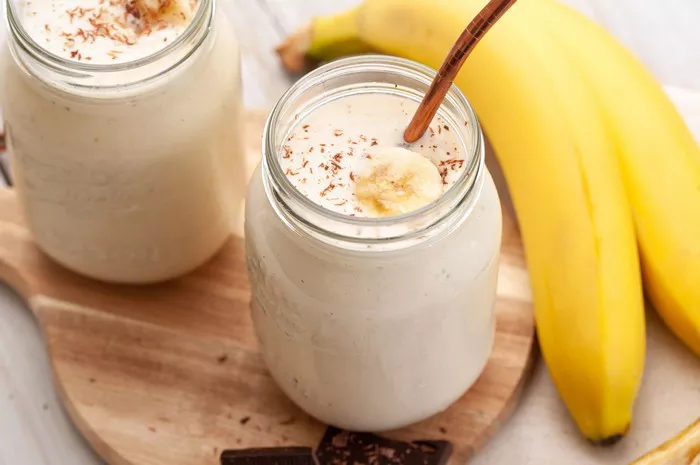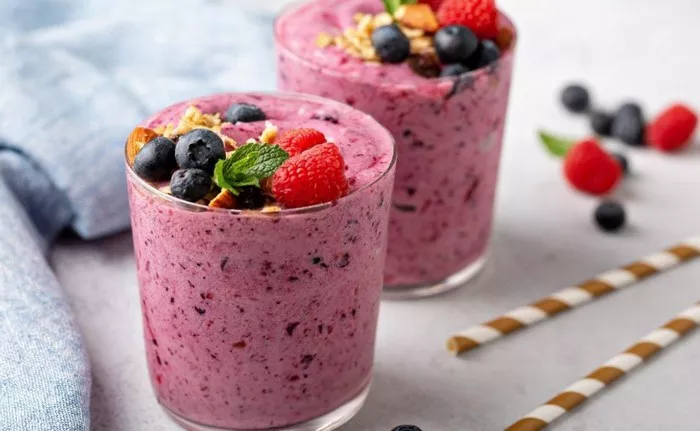A healthy gut is essential for overall well-being. It influences digestion, immunity, and even mood. Breakfast is a crucial meal that can set the tone for a healthy day. This article will explore various breakfast options that promote gut health, backed by scientific insights.
Understanding Gut Health
Before diving into breakfast options, let’s understand what gut health means. The gut is home to trillions of microorganisms, including bacteria, fungi, and viruses. These microbes play a vital role in:
Digestion: They help break down food.
Immunity: A healthy gut strengthens the immune system.
Mood Regulation: Gut bacteria can influence neurotransmitter production.
To maintain a healthy gut, it’s essential to consume foods rich in fiber, probiotics, and prebiotics.
The Role of Fiber in Gut Health
Fiber is a crucial component of a gut-friendly diet. It helps in:
Promoting Regularity: Fiber adds bulk to stool, making it easier to pass.
Feeding Gut Bacteria: Certain fibers, known as prebiotics, nourish beneficial bacteria.
Types of Fiber
Soluble Fiber: Dissolves in water and forms a gel-like substance. Found in oats, apples, and beans.
Insoluble Fiber: Does not dissolve in water and adds bulk to the stool. Found in whole grains, nuts, and vegetables.
Breakfast Foods for a Healthy Gut
1. Whole Grains
Starting your day with whole grains is a fantastic way to boost gut health. Whole grains are high in fiber and nutrients.
- Oats: A perfect breakfast choice. They are rich in soluble fiber, particularly beta-glucan, which can enhance the growth of beneficial gut bacteria.
- Quinoa: This grain is gluten-free and high in protein and fiber, making it an excellent breakfast option.
How to Include Whole Grains:
- Overnight Oats: Mix rolled oats with yogurt, chia seeds, and fruits. Let them sit overnight for a quick and nutritious breakfast.
- Quinoa Porridge: Cook quinoa in almond milk and top with berries and nuts.
2. Yogurt and Fermented Foods
Yogurt is a well-known source of probiotics, which are live bacteria beneficial for gut health.
Benefits of Probiotics:
- Balance Gut Flora: They help maintain a healthy balance of gut bacteria.
- Aid Digestion: Probiotics can improve lactose digestion and reduce bloating.
Other Fermented Foods:
- Kefir: A drinkable yogurt that is richer in probiotics.
- Kimchi and Sauerkraut: These fermented vegetables are great as toppings.
How to Incorporate Yogurt:
- Yogurt Parfait: Layer yogurt with fresh fruits, nuts, and a drizzle of honey.
- Smoothies: Blend yogurt with spinach, banana, and a spoon of nut butter.
3. Fruits and Vegetables
Fruits and vegetables are packed with vitamins, minerals, and antioxidants. They are also excellent sources of fiber.
Best Fruits for Gut Health:
- Berries: Strawberries, blueberries, and raspberries are rich in antioxidants and fiber.
- Bananas: They are high in potassium and can help maintain gut health by feeding beneficial bacteria.
Best Vegetables for Gut Health:
- Leafy Greens: Spinach, kale, and Swiss chard are nutrient-dense and high in fiber.
- Avocado: Rich in healthy fats and fiber, avocados are great for breakfast.
How to Include Fruits and Vegetables:
- Smoothie Bowls: Blend your favorite fruits and top with seeds and nuts.
- Veggie Omelette: Whisk eggs and add chopped spinach, tomatoes, and onions.
4. Nuts and Seeds
Nuts and seeds are packed with healthy fats, protein, and fiber, making them a great addition to breakfast.
Benefits:
- Healthy Fats: These fats help absorb vitamins and support heart health.
- Protein: They provide a good source of energy.
Best Options:
- Chia Seeds: High in omega-3 fatty acids and fiber.
- Flaxseeds: Known for their anti-inflammatory properties.
How to Incorporate Nuts and Seeds:
- Chia Pudding: Mix chia seeds with almond milk and let them sit overnight. Top with fruits.
- Nut Butter Toast: Spread almond or peanut butter on whole-grain toast and add banana slices.
5. Eggs
Eggs are a nutritious breakfast option. They are high in protein and contain various vitamins.
Benefits:
- Rich in Protein: Supports muscle health and keeps you full longer.
- Nutrients: Eggs contain choline, which is important for brain health.
How to Include Eggs:
- Scrambled Eggs with Spinach: Sauté spinach and add scrambled eggs for a nutrient-packed breakfast.
- Egg Muffins: Whisk eggs with vegetables and bake in muffin tins for an easy grab-and-go option.
Tips for a Gut-Friendly Breakfast
Stay Hydrated: Drink plenty of water, as hydration aids digestion.
Limit Sugar: High sugar intake can disrupt gut bacteria. Opt for natural sweeteners like honey or maple syrup.
Diversify Your Diet: Eat a variety of foods to promote a diverse microbiome.
Mind Your Portions: Eating large meals can lead to discomfort. Smaller, balanced meals are more digestible.
Sample Gut-Friendly Breakfast Ideas
Here are a few simple breakfast ideas that incorporate the elements mentioned above:
1. Berry Smoothie Bowl
Ingredients: 1 cup frozen mixed berries, ½ banana, 1 cup yogurt, toppings (granola, seeds, nuts).
Instructions: Blend berries, banana, and yogurt until smooth. Pour into a bowl and add toppings.
2. Quinoa Breakfast Bowl
Ingredients: 1 cup cooked quinoa, ½ cup almond milk, 1 tablespoon honey, fruits, and nuts.
Instructions: Heat quinoa with almond milk and honey. Top with fruits and nuts.
3. Veggie and Egg Wrap
Ingredients: 2 eggs, 1 whole-grain wrap, spinach, tomatoes, avocado.
Instructions: Scramble eggs with spinach and tomatoes. Place in a wrap and add avocado.
4. Chia Seed Pudding
Ingredients: ¼ cup chia seeds, 1 cup almond milk, 1 tablespoon maple syrup, fruits.
Instructions: Mix chia seeds, almond milk, and maple syrup. Refrigerate overnight. Top with fruits.
Conclusion
A healthy gut starts with what you eat for breakfast. Incorporating whole grains, yogurt, fruits, vegetables, nuts, seeds, and eggs can significantly benefit gut health. Remember to hydrate and choose balanced portions. By making mindful choices in your morning routine, you can enhance your gut health and overall well-being. Start your day right with these delicious and nutritious breakfast options!
Related topics:

























